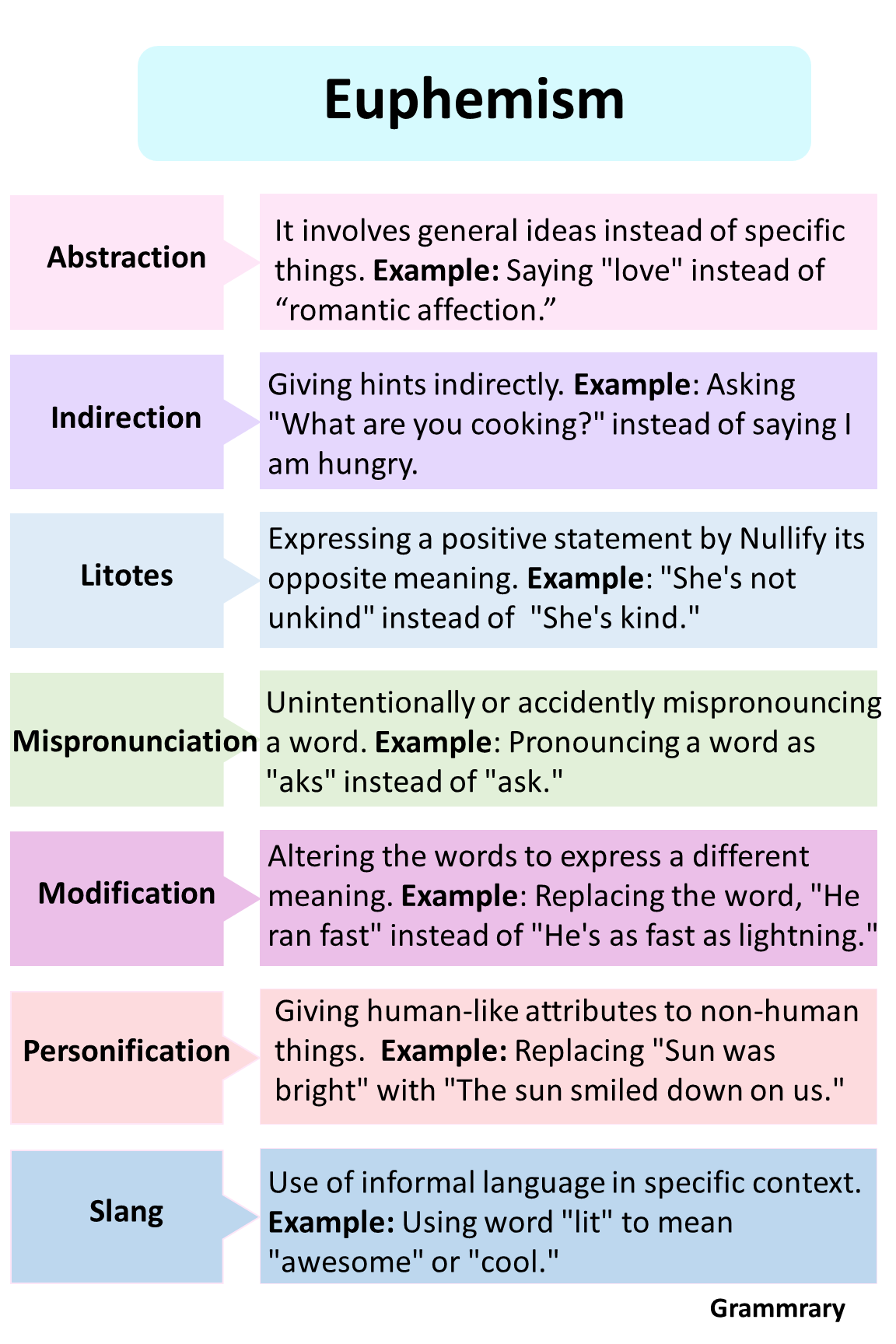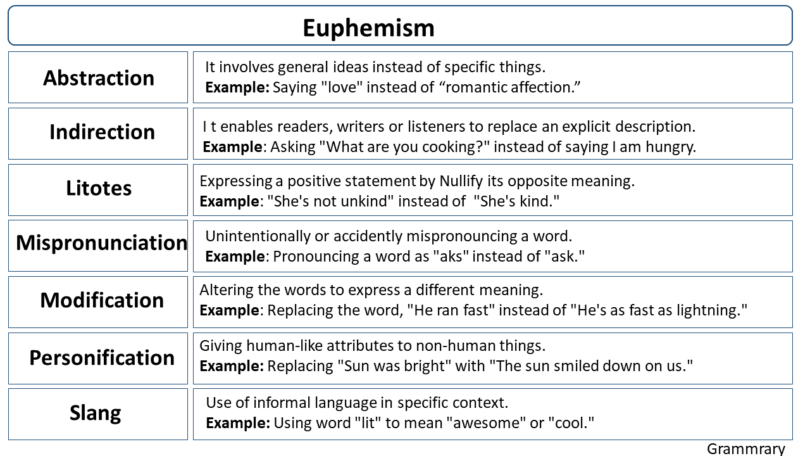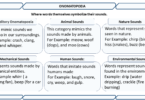How simple, exciting, and interesting it is to say things indirectly? Euphemism is a way of saying things indirectly. Let’s define Euphemism, Euphemism Definition, a type of figurative language, a way to say uncomfortable things as well as to reduce their unpleasantness, harshness, and impoliteness. It is most commonly used to address topics like death, bodily functions, aging, or uncomfortable workplace matters. It enables the speaker to deliver their point-of-view indirectly, thus reducing the severity of the matter. After exploring Euphemism Meaning, Let’s explore its types, and Euphemism Examples.
Discover exciting changes on the Mcdo menu with fresh beverage options. Explore new flavors that cater to diverse taste buds. Quench your thirst with refreshing drinks that promise an enjoyable dining experience.
In the world of fast food, McDonald’s is continuously redefining its offerings, especially in the beverage department. Whether you’re grabbing a quick meal or just popping in for a refreshing drink, McDonald’s beverages can surprise and delight your taste buds. Let’s dive into some of their latest innovations in drinks, which are making waves with their unique flavors and refreshing choices.
Situations in which you can use Euphemisms:
After define Euphemism and exploring Euphemism Definition, explore the three situations they are most commonly used in.
- Mitigation
- Rhetorical
- Avoidance
1 Mitigation
As I define Euphemism, it works to reduce the severity of the situation and lessens the blow of bad news. For example, when the government explains use the words “disinflation” or “recession” instead of using the word “decline” while saying ” US economy decline.” Have you ever heard the words “pre-owned” or “certified” in adds where cars are listed as “certified” or “pre-owned,” instead of saying “used”? You are right! It’s exactly Euphemisms.
2 Avoidance
You must be thinking how it implies in avoidance. Have you heard someone telling about death as “She passed away!” instead of saying “She died”. Perfect! It’s another example is the replacement of the phrase “let go” with the term “fired”, while saying, “She was fired”.
3 Rhetoric
It is a rhetorical device to avoid hard terminologies, enables authors to address harsh or embarrassing subjects, addressing them indirectly. Many types comes under rhetorical devices, which we are going to explore onwards.
Types of Euphemisms to better understanding Euphemism Meaning:
There are six types of euphemisms, and these comes in all of three situations, we discussed earlier, in which we use euphemisms. These situations are, mitigation, abstraction, and rhetorical situations. We are going to discuss each type in depth. Below are Types of Euphemism with Euphemism Definition, and Euphemism Examples to help better understand Euphemism Meaning. The types are:
- Abstraction
- Indirection
- Litotes
- Mispronunciation
- Modification
- Personification
- Slang
Abstraction
This type of euphemisms works to distance the listener or the reader while telling them a hard reality or an unpleasant or embarrassing truth. Consider a situation of being in a hospital and hearing “Sorry, but your cat passed away”, instead of ” Sorry, but your cat died” Obviously, this could not lessen the pain but this is what euphemism is! This is also an example of avoidance or mitigation situation, as we discussed earlier.
Indirection
It enables readers, writers or listeners to replace an explicit description. For example, saying “big boned”, instead of “fat”.
Litotes
Litotes enables to use a double negative or ironic statement. It is a way to saying something with an opposite meaning. It works to minimize the harshness of a situation.
Mispronunciation
It is a form in which we alter altering inappropriate words to convey the same annoyance or frustration without even saying the explicit word. The thing is to get over of all the frustration, the same could could do, without even saying that word. That’s why, words are powerful enough to break hearts. Words are more powerful than swords. Words can kill someone without using any weapon. So. chose wisely!
Modification
It involves the the modification of an offensive noun to an adjective. In this way, impact of that word gets soft.
Personification
It involves the association with bodily functions, this type of euphemisms discuss things that by assigning them a personal name. Can you think of any example?
Slang
Slang is vocabulary from specific social groups. It is also considered as euphemism. Slang enables to save time, particularly in rhetorical situations.
Hope it helps you to better define Euphemism, understand its Meanings and Examples.
Types of Euphemism Definition with Euphemism Examples to better understand Euphemism Meaning:
| Type | Definition | Example |
| Abstraction | It involves general ideas instead of specific or concrete things. | Using the word “love” instead of saying romantic affection. |
| Indirection | Giving hints about something indirectly. | Asking “What are you cooking?” instead of saying I am hungry. |
| Litotes | Expressing a positive statement by Nullify its opposite meaning. | Saying “She’s not unkind” instead of saying “She’s kind.” |
| Mispronunciation | Unintentionally or accidently mispronouncing a word. | Pronouncing a word as “aks” instead of “ask.” |
| Modification | Altering the words to express a different meaning. | Replacing the word, “He ran fast” instead of “He’s as fast as lightning.” |
| Personification | Giving human-like traits and attributes to non-human things. | Replacing “Sun was bright” with “The sun smiled down on us.” |
| Slang | Use of informal language in specific context. | Using word “lit” to mean “awesome” or “cool.” |

Let’s explore Euphemism, Types and Examples
Some common Euphemism Examples, with their meanings:
Here are examples of Euphemism, with their meanings.
| Sr. no | Euphemism | Meaning |
| 1 | kicked the bucket | has died |
| 2 | A few sandwiches short of a picnic | Mad |
| 3 | Cognitively challenged | Stupid |
| 4 | Differently abled | Disabled |
| 5 | visually challenged | visually impaired |
| 6 | exotic dancer | stripper |
| 7 | letting you go | you’re fired |
| 8 | over the hill | very old so can’t function effectively |
| 9 | lost his marbles | insane |







